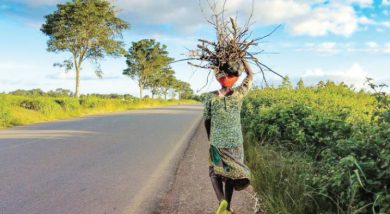Balaka chiefs back women inclusion
Talk is cheap. Anyone with a wagging tongue can talk about gender equality.
But in Malawi, traditional authorities (T/As) Nsamala and Chanthunya in Balaka district are taking necessary action to break a culture of silence and inequalities that exclude women from decision-making positions in their area.
Ethnically, chiefs shape the norms and lifestyle of Malawians, particularly in rural areas. They are powerful figures.
If Chanthunya wanted, women would rush to his royal presence bowing, literally ‘walking on their knees’ and even rolling on their backs.

But he refuses to keep the women on their knees. Instead, he wants them to stand up and lead the way.
Like Nsamala, he has put the fight for women’s rights and inclusion at the centre of everything happening in his territory. Now women are no longer passive observers and recipients of man-made decisions.
They have a voice—the reason Association of Progressive Women (APW) says Chanthunya and Nsamala are “a cut above the rest”.
Their impassioned struggle for women to take part in decision-making offers their fellow traditional leaders lessons on how to achieve equal representation of men and women in community leadership.
They seem determined to ensure the country fulfils its promise to ensure women hold half of positions of influence up for grabs.
This is in line with the country’s obligations under the African Union (AU) Convention on the Elimination of All Forms of Discrimination against Women (Cedaw) and SADC Protocol on Gender and Development.
But Chanthunya told thousands at a meeting in his area that the decision to have more female leaders in village and area development committees’ local structure stems from a belief that local structures act as a nursery for women to take up greater decision-making roles in society.
“Whenever a village head dies, I lobby members of the royal family to promote a woman. I do the same when opportunities arise in the local structures. I don’t compromise on women inclusion,” Chanthunya says.
Presently, there are 26 female village heads in his area and women occupy 131 positions in the development committees with 135 leaders.
The picture is brighter in Nsamala where women occupy 197 of seats in the local development committees, village savings and loans groups, youth networks, radio listening clubs. Men won just 135 seats.
These figures mirror one of the success stories of APW’s interventions to accelerate gender equality and women empowerment in Balaka, Rumphi and Nsanje.
Alfred Bvalani, APW district facilitator for Balaka and Neno, envisages the initiative training and equipping women to take part in leadership roles.
He says Balaka West Constituency, represented by Patricia Shanil Dzimbiri, has done well “extremely well” in putting women in leadership positions through her coordination and performance.
“Although Chanthunya is a Ngoni ruler and male dominance is part of culture, he has done a tremendous job in embracing women inclusion. Now we need to empower the women holding different positions to be effective and efficient in their roles,” Bvalani says.
The APW project is funded by Norwegian Embassy through NGO-Gender Coordination Network (NGO-GCN) whose vice-chairperson Noel Msiska spoke highly of “significant changes” taking place in the communities with equal representation of women at the helm.
“There have been positive trends on gender equality and the impact is quite encouraging. It shows people now understand and appreciate the need to embrace women in development,” he says.
He envisions the women in local leadership running for ward councillorship, parliamentary seats and even the presidency in future.
The proportion of women MPs in Malawi has risen since the restoration of multiparty politics in 1993.The country elected its first woman vice-president, Joyce Banda, in 2009. Banda subsequently became the country’s first woman president.
This positive trend came to an end in 2014. Banda came third in the presidential election and women won just 32 seats in the 193-seater Parliament.
Dzimbiri is one of the few female voices in the National Assembly.
She brims with joy seeing her constituency being recognised as an achiever in the battle to end exclusion of women from positions of power.
“Whenever I hold a meeting, I impress it upon the people not to overlook women in leadership roles and I am happy they are heeding my plea to give women a chance,” she said.
She urges women to wake up and stop underrating themselves, saying there is no secret of success than courage, dedication and hard work. n





